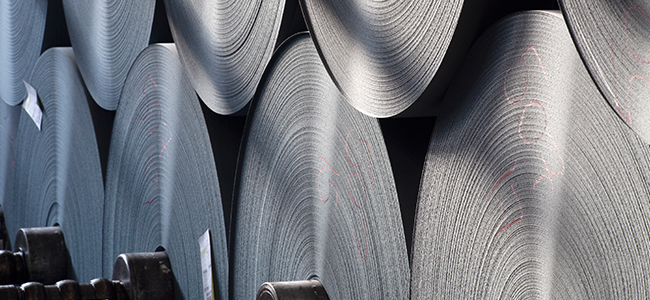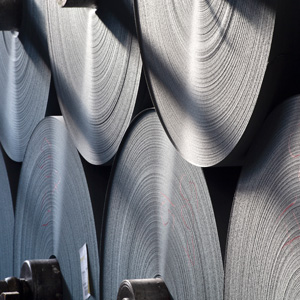Success in Paper
Righting a government wrong
In 2015, a century-old, privately-owned paper producer in Canada expanded into the United States by purchasing two US pulp and paper mills, but shortly after found itself in a financial squeeze through no fault of its own—and Arena was able to step in to help the company continue the expansion as planned.


The acquisition of the US mills increased the company’s production capacity by 65%, and with the addition of these mills, the firm built a strong market position as one of the largest producers and marketers of specialty coated printing papers in North America.
That same year, however, a group of US producers of supercalendered paper—a highly-glazed type of paper that is a large part of the Canadian company’s business—filed petitions with the US International Trade Commission (USITC) and the US Department of Commerce alleging that Canadian importers of that paper were being subsidized by their regional and national governments. The USITC and the Department of Commerce initiated an investigation and determined that such subsidies were being provided, and in response, a countervailing duty was levied by the United States on all Canadian imports of supercalendered paper.
The countervailing duty (CVD) created a cash drag for this Canada-based producer that ultimately came to Arena for funding. The company was in fact a diverse paper business, making printing and writing papers, a growing line of specialty products for applications such as labels, food liners, pressure-sensitive products, and specialty packaging, and both softwood and hardwood pulp. Its customers included retailers, publishers, commercial printers, and other entities across the Americas, the Pacific Rim, and Europe.
And yet, although its subsidy levels had not been directly investigated, the firm was assigned a CVD rate of approximately 11% based on the average CVD rate for the two larger Canadian producers that had been investigated—and that figure translated to a direct hit on the company’s export revenue beginning in the summer of 2015.
Because this company was assigned a CVD rate unfairly, it requested an expedited review of the order. The Department of Commerce investigated and determined that the company received minimal subsidies and should be excluded from all future duties. The Department of Commerce also directed US Customs to refund all duties that had been collected from the company.
However, the financial damage had been done. In the time between the imposition and the lifting of the duties, the company had paid duties on more than 5,000 instances of importation, and the refund was scheduled to be made slowly, over a period of six months—all at a time when the company’s business plan had resulted in lower liquidity at the same time it needed equity for plant expansion—and this is where Arena came in.
Arena was introduced to this paper company through a small broker-dealer with experience in the paper and shipping industries. We learned that the company needed cash quickly (even more quickly than the six months of scheduled duty refunds). To meet the short timeline, the firm sought a partner to purchase the CVD refund receivables, and Arena became that partner. We agreed to purchase the roughly $14 million in receivables for about 92.5% of their face value—a reasonable rate for both parties, as is Arena’s way. In our view, we saw what was possible in this classic win-win situation of an opportunity.
Here’s why: The transaction offered a compelling opportunity to purchase a portfolio of short-term, high-quality receivables at an attractive discount. The receivables were to be paid back over the next few months by US Customs, on direction from the Department of Commerce, meaning the likelihood of the receivables being delayed or reversed was very small. And on top of all the benefits for us, we were able to lend a hand to a company of 2,600-plus employees that was in an unfortunate situation through no fault of its own.
Because of this well-structured deal, the borrower was able to provide equity for a $75 million expansion of one of its US mills, adding capacity of 75,000 tons of paper per year, helping the company stay in its stride, support both the US and Canadian economies, and overcome a bureaucratic injustice that had threatened workers on both sides of the border.